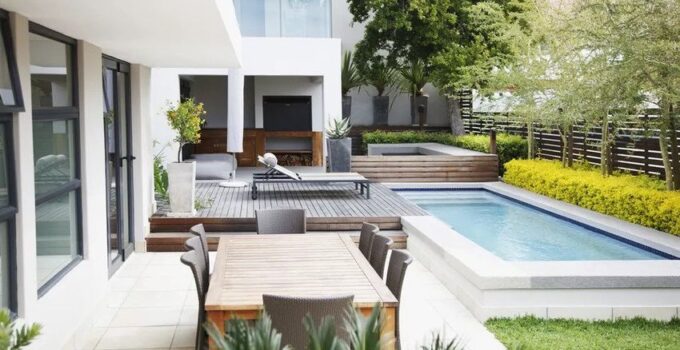Having a pool in your backyard is amazing. It brings you freedom, in the long run, it cost less money than paying a monthly fee for that public pool and it brings people together.
Pool parties are really good and once you install a pool in your home, your social life will spike up. If you are reading this article, it’s probably because you are already entertaining the thought.
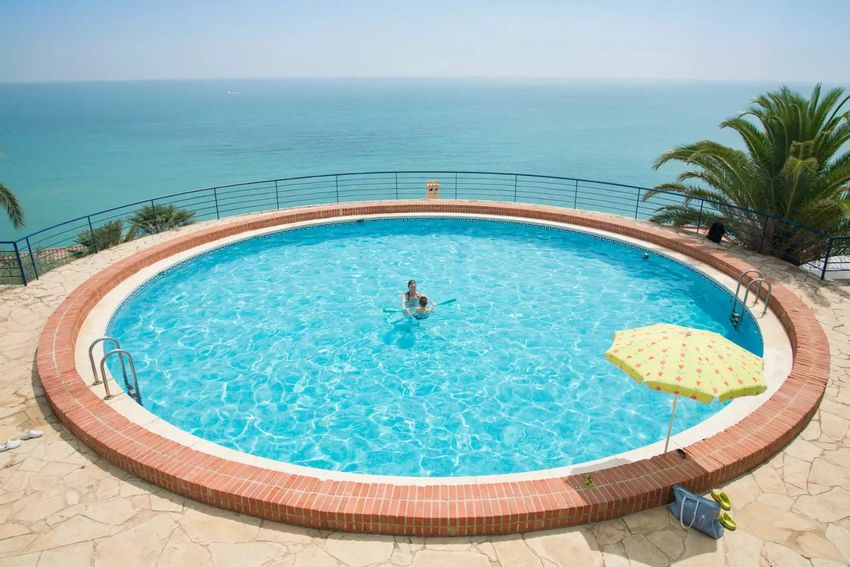
source:thespruce.com
As you probably already know there are a lot of different types, sized and shapes of pools and here we are going to talk about the size of the pool you should get. If you wanted a pool larger than life, you should think again and here is why.
Page Contents
Types of pools
Before we get into the specifics of large and small pools let’s talk about the types of pools available on the market. These are the most common types.
Reinforced Concrete Pools
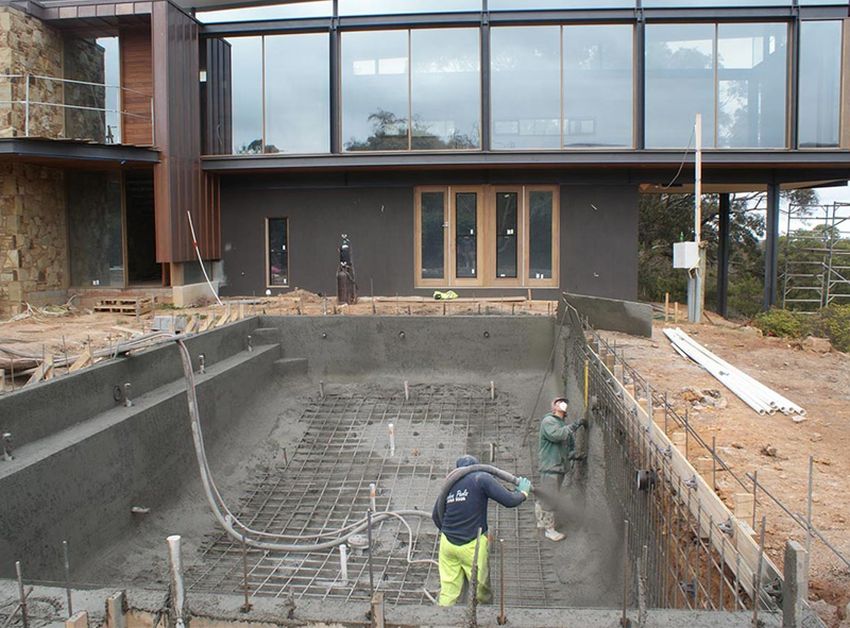
source:ecopoolsmelbourne.com.au
Most common types of pools. They come in different shapes and sizes; you can create one just like you imagined it. Some of the advantages include:
- Long life expectancy
- Flexible in terms of size, shape and depth
- Low cost in some countries
Some of the disadvantages include:
- Must be properly designed to avoid leaks and cracking
- Has to be strong enough to withstand ground movements
- It takes time to complete.
Inground Membrane Pools
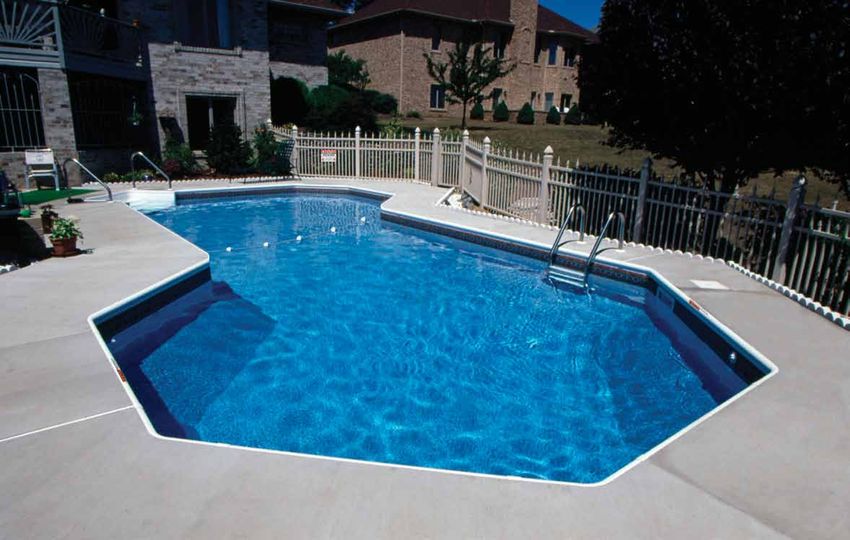
source:earlyexperts.net
Types of pools that consist of a hole in the ground, which is lined with a waterproof membrane. More common than you’d expect and here are some of the advantages of these pools:
- Low cost, usually depending on the material
- Easy to construct
- Won’t get damaged by ground movements
Disadvantages:
- Thin membranes can be easily damaged
- If the construction is not done right, it may leak and be difficult to seal
Above Ground Pools
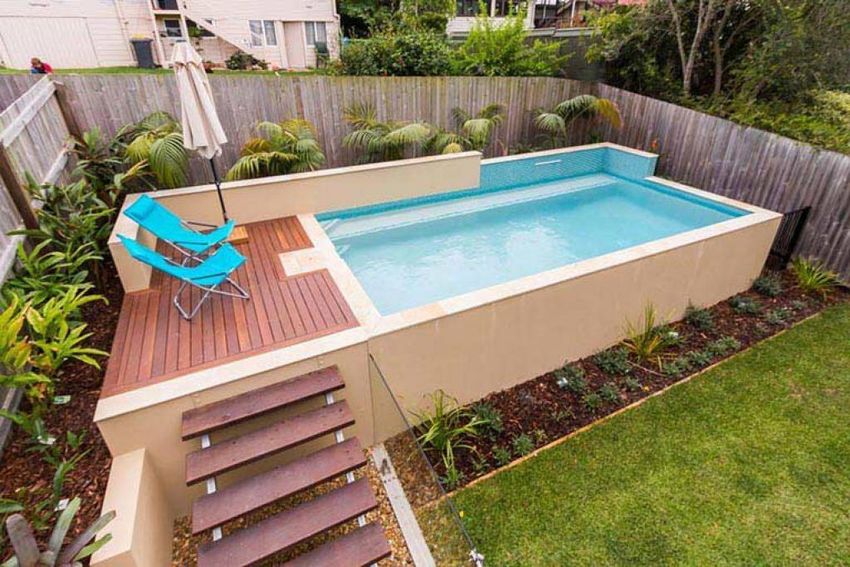
source:pinterest.com
These pools are mostly available in the US and Australia. They consist of a lightweight aluminum or steel wall placed on a flat surface with a Polymer liner.
Advantages:
- Quick and easy to install
- Really low cost
Some of the disadvantages include:
- The liner can be easily damaged
- Low life expectancy
- Limitations in-depth
- May make the backyard look worse
Fiberglass pools
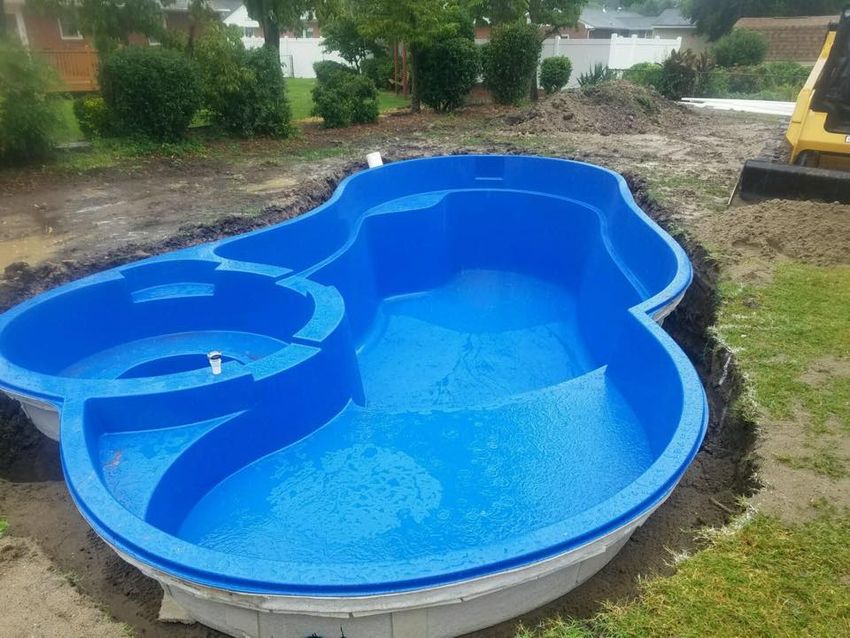
source:hazelwoodchildren.com
As the name suggests, these pools are made of fiberglass. They are mostly available in developed countries and they are limited in size. Their advantages include:
- Easy to install
- Less expensive than concrete pools
- Relatively high life expectancy
- Safer than concrete pools
Some of the disadvantages are:
- Limited sizes
- Need a crane to lift them in place
- The site has to have access for cranes and trucks
- Has to be correctly installed and properly supported from the underneath
- Can pop out of the ground if it’s left empty when the water gets underneath them
Small Pool Installation Benefits
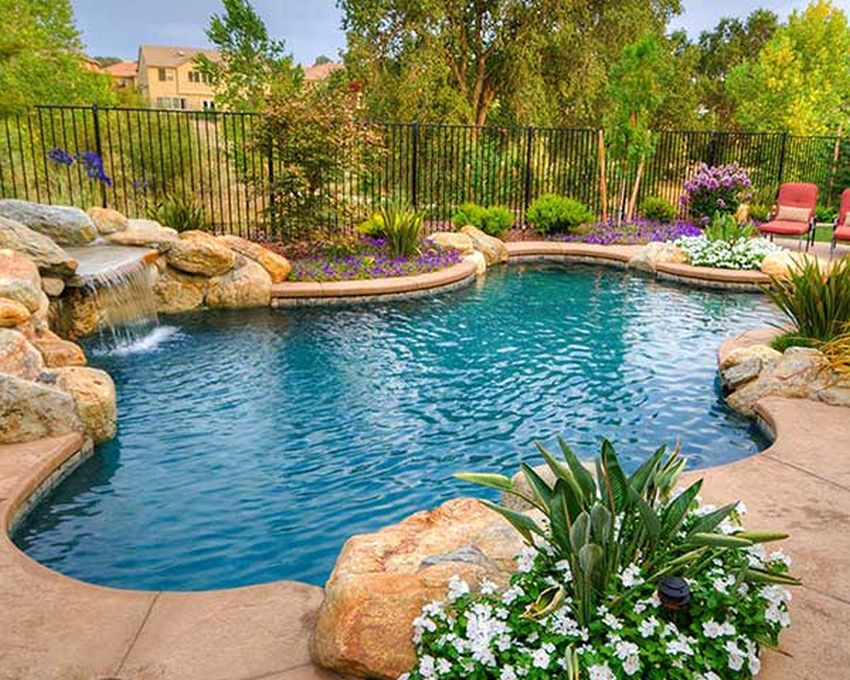
source:pinterest.com
Now that you know what types of pools there are on the market, we can move on to talking about the size.
Small pools, also known as swim spa use fewer resources, they take up less space and they are far less expensive than large pools. So, if you are concerned about space, if you are (or want to be) environmentally friendly or if you don’t want to spend too much money on a pool, you should choose a small-sized pool. Click here if you want to know more about the types and sizes available.
Environmentally Friendly
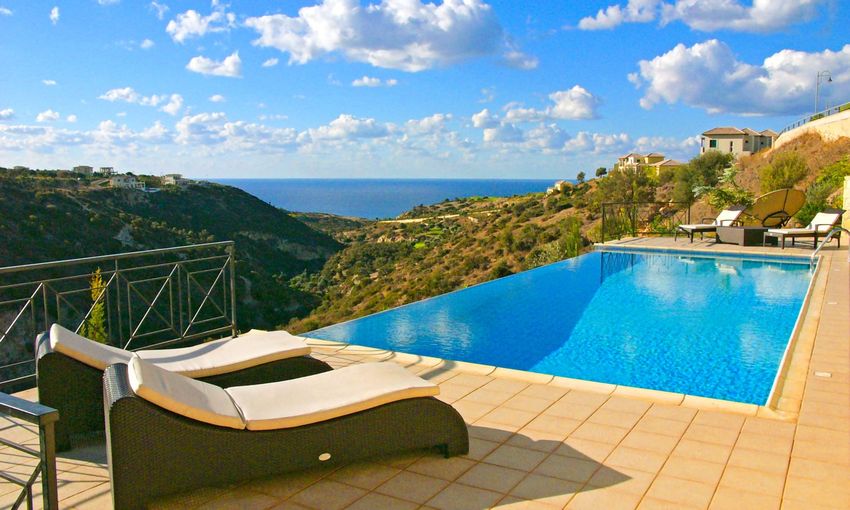
source:theguardian.com
A simple logic, the more water a pool has, the more chemicals you will need to keep it clean. Most people think that chlorine is enough to keep the pool sanitized, but the reality is, you need a lot more than just chlorine. The chemicals needed to keep the pool clean and safe include:
- Free Chlorine (FC)
- pH
- Total Alkalinity (TA)
- Calcium Hardness (CH)
- Cynauric Acid (CA)
Sounds scary, right? Small pools also generate a smaller carbon footprint and you can easily heat a swim spa with solar panels.
The lowered costs of chemicals to keep it clean, less water needed and a smaller electricity bill makes swim spas a far better option. They are environmentally friendly and they will not make a hole in your pocket.
Easier to Maintain
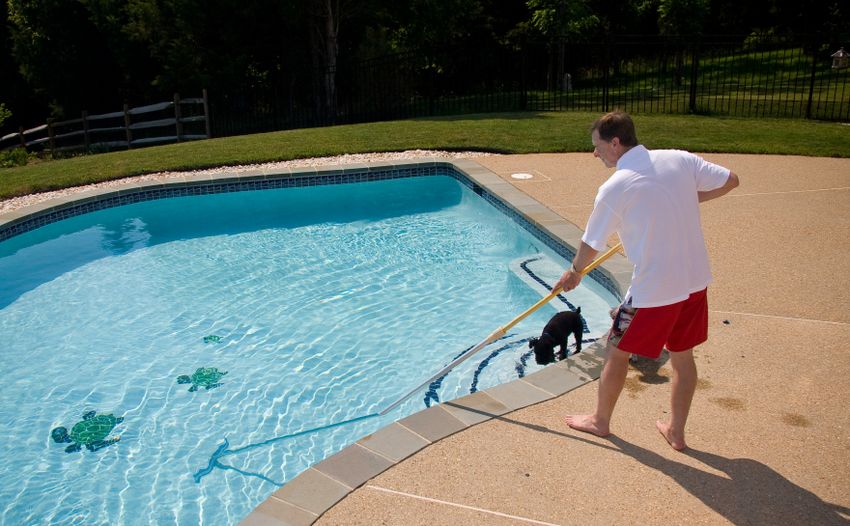
source:cheatsheet.com
You know that pools need to be cleaned, right? Many people just think about swimming and relaxation and forget they will need to drain the pool and clean it.
Smaller pools are easier to clean and you won’t freak out about the debris that falls into the pool. There are options like robotic and suction cleaners that will make your life easier.
When you choose a swim spa, at the end of the day you are choosing free time over cleaning time. And fewer arguments with your family about who’s turn it is to clean the pool.
Less Expensive to Run

Img Source: risingsunpools.com
As we mentioned before, the water quality is easier to maintain in a small pool because there is less water and that fewer chemicals.
It costs less to build a small pool and it costs less to keep it heated once you have it. Additionally, there is no need for costly dehumidification systems. A swim spa requires less construction, fewer materials and that a more budget-friendly installation.
Don’t think that if you choose a smaller pool that you won’t be able to get the same satisfaction that you would in a huge pool. You will still be able to swim as much as you can, have all the house parties you want and your kids will have the time of their lives.
Pools keep the family healthy and give the best combo of fun and exercise. And just so you know, they are far larger than you think, even though they are called swim spas.
The bottom line is, the small pools are less costly to run and definitely more efficient. They offer more functions and a smaller footprint.
If you choose a swim spa, you will make a difference in the environment, your wallet, your home and your health.

